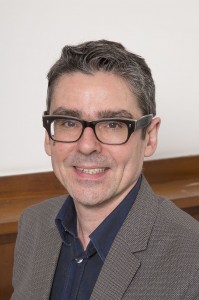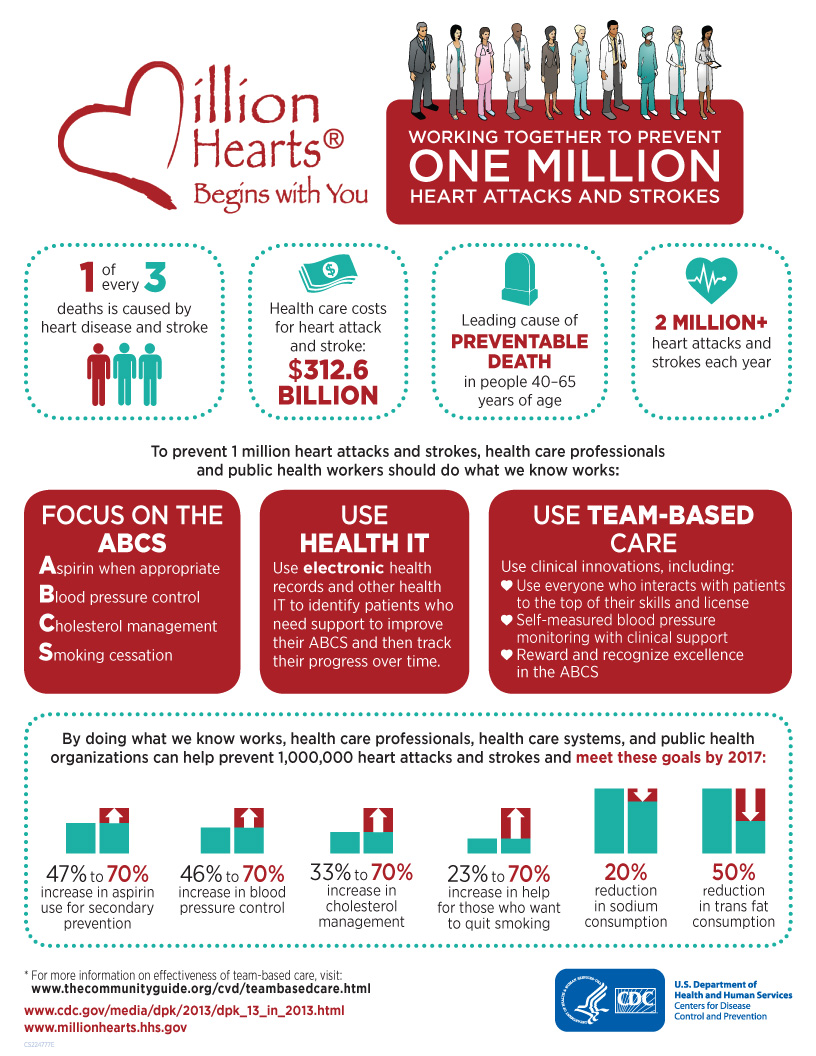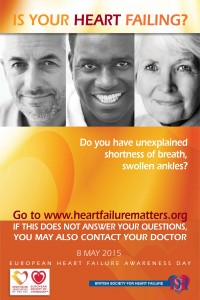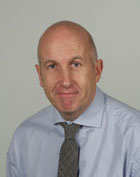
Prof Harry Hemmingway
- APOLLO study, which looked at data from over 10,000 UK heart attack patients, presented at the European Society of Cardiology congress1
- Study shows the risk of repeat cardiovascular (CV) events remains high for four years after a patient’s initial heart attack, despite use of secondary prevention interventions, including medication and surgery1
- Expert says UK has some way to go to prevent patients having repeat attacks or dying from CV disease
- CV is the UK’s biggest killer with around 180,000 deaths a year, while the British Heart Foundation (BHF) estimates that there are approximately 1 million men and 500,000 women who have had a heart attack, and almost 600,000 men and 600,000 women who have had a stroke.2
PatientTalk.Org were delighted to have the opportunity to interview Professor Harry Hemingway of the Farr Institute of Health Informatics Research and National Institute for Cardiovascular Outcomes Research, University College London about the research and its findings. He was one of the investigators on a this study of major event rates of people who have survived heart attack.
Patient Talk: This is a study of over ten thousand UK patients over a period of 5 years. Is that a particularly large sample for a study of this kind?
HH: So yes and no is the simple answer there. It would have been a large study if you had to individually contact each of these patients and invite them to take part in that study. That not’s all we did. What we did here was exploit the advantages of the high quality NHS patient records so this is anonymised data here to look at. This kind of sample size is needed to get good estimates of these risks.
PT: Would you mind just giving us an overview of the methodology that you touched on briefly there?
HH: We used NHS patient records for this study and that’s a real advantage because we have a country with one health system and it’s got electronic health records in primary care and it’s got data in hospitalisation and course specific death data. So we link those up and that gives us a complete picture of the people, the heart attack and their subsequent risk re heart attack, stroke and death.
PT: My understanding is that the first year is considered the most important to think about how people are reacting after the event but what the study implied here is that you need to start thinking that four years is the period that is going to be when events are going to take place.
HH: I think you are absolutely right –that historically our focus has been really on that acute phase. So somebody comes with a life threating condition of heart attack to hospital that’s where the clinical care is focused and that’s where the research is focused. Let’s face it we in the NHS and in other countries have been having been dramatic improvements in early survival and other outcomes but what this new research shows is that one year after a heart attack risks continue to be high and that’s really important and that suggests a new focus on these heart attack survivors.
PT: Do you think it will be fair to say that it starts to redefine what is high risk?
HH: It’s not about redefining. We don’t actually have a definition to start off with. One of the things that surprised us here is we actually don’t have previous good studies to say in exactly in this population people who have survived a year after their heart attacks what kind of risks can we expect. This study shows that those risks are high and it allows us to then re-orientate the guidelines to say what do we need to do to bring those risks down.
PT: You seem to be saying that this laying the groundwork.
HH: That’s right. This is new. It is laying the ground work. We can compare with some other studies. For example we’ve got, one study looked at people with so called stable coronary disease ie.people who are some months after a heart attack or they’ve got angina and we show that our risks that we see are three times higher in that particular study.
PT: How do your account for such a high level of repeat heart attacks?
HH: I think there a number of factors here. One is that the lifestyle factors so patients continue to smoke, may not exercise, diet may be a factor. Secondly we know that patients and their GPs are maybe not be prescribing or taking the secondary prevention medications that are required long term. Statins to lower bad cholesterol, aspirins to thin the blood, beta blockers. Thirdly I think these patients represent a chronic phase of disease and one may want to look after them in a chronic disease management framework. Often people with heart attack who have survived have other conditions; diabetes, heart failure and so on.
PT: These are the UK results. You have mentioned the NHS information has been quite helpful for this study. How do you see the results stacking up? I know you mentioned Sweden and France in the report. How did you see the NHS stacking up against those health systems and the UK results in the same fashion?
HH: In a sense this is a good news story for the NHS because although the risks are high they are high in all these country’s so this is not a problem about one health care system. This is a problem about how as a system we haven’t given enough focus to these patients. So in the US, in Sweden, in France, in the UK in total we studied 140,000 patients again drawn from records as part of usual clinical care and administrative data. And we showed that about 1 in 5 of these heart attack survivors went onto have a subsequent heart attack, stroke or death over the following three years.
PT: How can a person who has had a cardiac event best prevent recurrence?
HH: It’s really important to pay attention to lifestyle. If you smoke stop smoking. If you’re not taking any exercise then that needs to be looked at. It’s really important to take the right secondary prevention medication the statins, the aspirin, beta blockers and so on. And in addition I think it’s wise to check your heart health with your GP
PT: You mentioned briefly exercise there. Any sort of best practice of exercise that people should be taking into account of?
HH: That wasn’t the focus of this particular study and the recommendations for exercise after heart attack and rehabilitation after heart attack predominantly focus on that early phase after a heart attack. So by twelve months out of a heart attack there would be very few if any patients who were in structured exercise programs or cardiac rehabilitation.
PT: Finally what one piece of advice would you give somebody who has just had a cardiac event?
HH: I think for somebody who has survived twelve months after a heart attack, I would say keep on top of your risk. Be in consultation with your general practitioner. Make sure you are doing everything to keep that risk low.
HARRY HEMINGWAY is Professor of Clinical Epidemiology at University College London. He is the Director of the Farr Institute of Health Informatics Research, London, one of four national centres funded by the MRC and nine other funders, representing a £39M investment in health informatics research, a member of the UCL Partners Informatics Board, Co-Investigator on the Administrative Data Research Centre, England, (£8m ESRC investment), and informatics lead for several Biomedical Research Centre initiatives.
Postscript
AstraZeneca today announced the UK results from the observational APOLLO study, which demonstrates that the risk of repeat CV events remains high for four years after a patient’s initial heart attack, despite use of secondary prevention measures.1 The APOLLO study looked at data from over 10,000 (n=10,854) UK heart attack patients, between April 2005 and March 2010 and found that whilst two thirds of these patients (n=7,238) remained event free in the first year following their heart attack, approximately 17% (17.2%, CI 16.0-18.5) of these went on to suffer another event including heart attack, stroke or fatal cardiovascular disease (CVD) in the subsequent 3 years.1
The study also showed that the proportion of patients remaining on medication for up to 3 years after their first event was high. However, there were some variances with only 65% of patients taking a statin after three years.1
“These important data tell doctors, patients and policy makers in the UK that while we’ve made great strides in reducing cardiovascular risk in the general population, we still have some way to go in preventing people who have already had a heart attack, going on to have further events or dying from cardiovascular disease. This is especially true if we compare ourselves with our neighbours in Sweden and France,” said Harry Hemingway, Professor of Clinical Epidemiology and Director of the Farr Institute of Health Informatics Research, London, at University College London. “For doctors, these data tell us that all patients who have had a heart attack should be considered and treated as ‘high risk’ of subsequent events, regardless of their previous history; for patients, this study highlights that your risk doesn’t disappear after the first year and attention on maintaining good heart health should continue indefinitely.”
CVD (the term for all diseases affecting the heart and circulatory system) is the UK’s biggest killer and, despite the decline in death rates in recent years , it caused 180,000 deaths in 2010.2 The cost of CVD to the UK health care system was £8.7 billion in 2009 and there were approximately 292 million prescriptions issued to patients in England with CVD in 2011.2 In the UK, the British Heart Foundation estimates that there are approximately 1 million men and 500,000 women who have had a heart attack, and almost 600,000 men and 600,000 women who have had a stroke.2
APOLLO was an observational cohort study designed to estimate the event rates of MI, stroke and fatal CVD in patients who have experienced a heart attack and are being managed under usual clinical care.1 It also examined the rates of bleeding events and medication use in this population of patients.1 Similar data were collected from France (n=1,757), Sweden (n=77,976) and the US (n=53,909) and the findings show that the unadjusted risk of a subsequent hospitalisation for another heart attack or a stroke or death within 3 years of the first event is different across the 4 countries and was approximately: 1 in 4 in Sweden and the UK; 1 in 5 in France; and 1 in 3 in the US.3 However, when these risks are adjusted for differences between countries in the demographics and baseline health of the study populations, the rates are similar with about one in five going on to have a subsequent event in each of the four countries.3
References
1 Rapsomaniki E. et al. Health outcomes in patients with stable coronary artery disease following myocardial infarction; construction of a PEGASUS-TIMI-54 like population in UK linked electronic health records. Poster presented at ESC 2014; 31 August 2014
2 Townsend N. et al. (2012). Coronary heart disease statistics 2012 edition. British Heart Foundation: London. Available here. [Last accessed August 2014]
3 Rapsomaniki E, et al et al. International comparison of outcomes among 140,880 patients stable after acute MI; real world evidence from electronic health and administrative records; Abstract presented at ESC 2014; 31 August 2014




